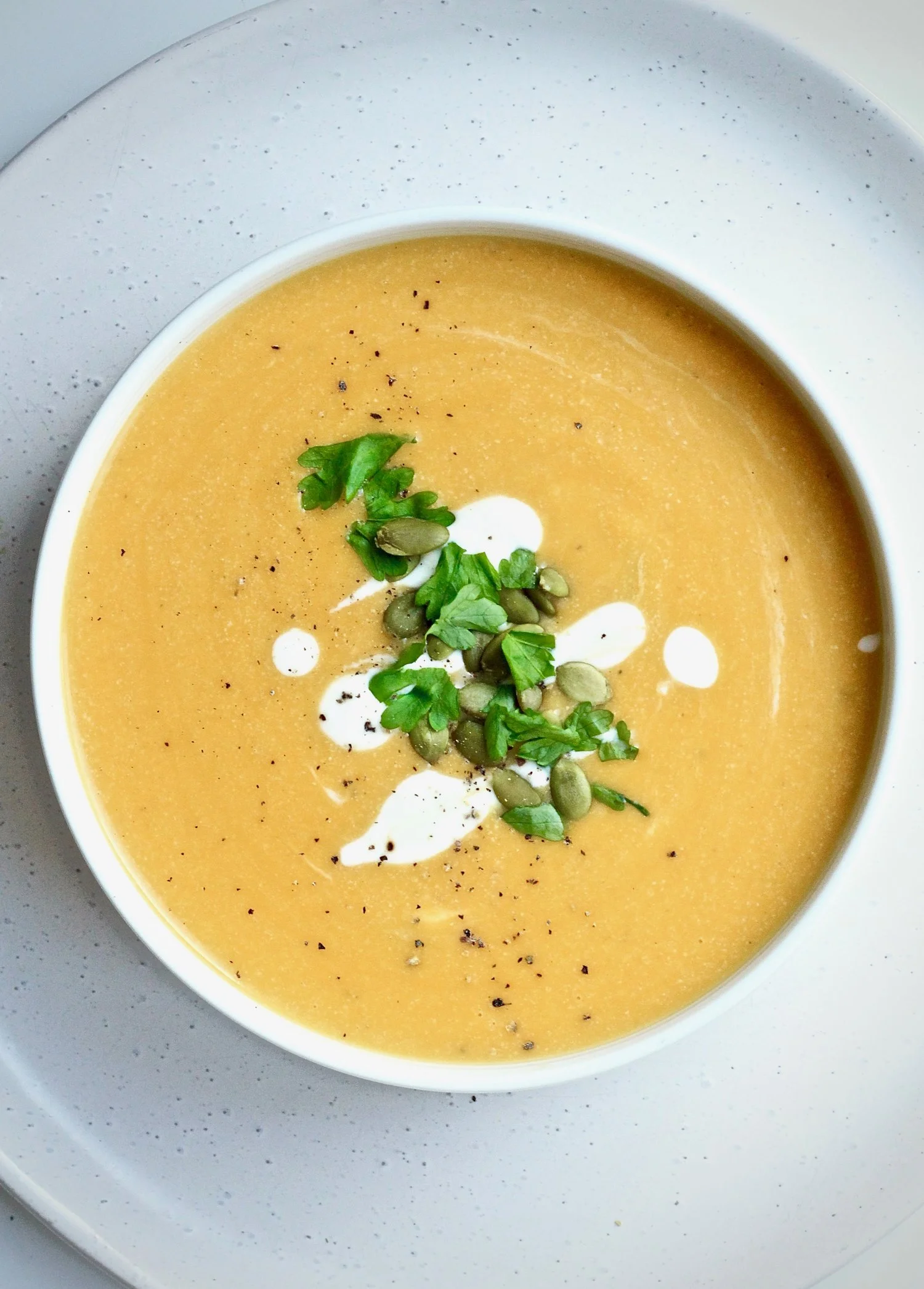Are there any dishes more quintessentially Autumn than a cream of pumpkin soup? Below is a dairy-free and vegan take on the classic! While still wonderfully creamy, a bowlful is perfect for those who do not consume dairy products due to preferences, intolerances or allergies. Can you guess what super simple ingredient is used to soup gloriously creamy? Read below to find out!
Thank you to our nutritionist Danijela for this yummy recipe. For more nutritious recipe ideas from Danijela, head to her website here.
CREAM OF PUMPKIN SOUP
Serves 6
INGREDIENTS
1/2 cup cashews + soaked in 1 cup water
1.2kg whole butternut pumpkin
1 brown onion
2 cloves of garlic
1L veggie stock (e.g. veggie stock cubes prepared with water, fresh pre-made stock or homemade stock)
Salt and pepper, to taste
METHOD
Begin by preping your cashew cream - this will be used to make the super creamy! Combine cashews and water together. Soak for 30 minutes.
Clean pumpkin. Carefully slice in half, spoon out inner seeds, and discard. Place the flat-side of each halve down, and slice into thick pieces from top to bottom. Thinly slice the skin off, and dice the flesh into large bite-sized pieces. Aim for each piece to be relatively uniform in size.
Peel onion and garlic, discard skin and roughly chop each.
Add to a large saucepan or soup pot diced pumpkin, onion, garlic and stock.
Bring to boil uncovered, and then reduce to a simmer until the pumpkin is tender - around 35-40 minutes.
Once soup has finished cooking, blend together the cashews and water using a stick blender or food processor until super smooth.
Blend soup using a stick blender or food processor. If you’re using a food processor, do NOT put hot soup into the blender as this can be dangerous - let cool first.
Once soup is blended, pour in cashew cream and mix until smooth. Taste-test and add salt and pepper to your liking. Enjoy!
NUTRITIONAL INFORMATION
Per serving
Protein: 4.3g
Carbohydrates: 19.85g
Dietary fibre: 2.47g
Sugars: 10g
Fat: 5g
Pumpkin is a source of antioxidants, including alpha-carotene, beta-carotene and beta-cryptoxanthin. These may help neutralise free radicals, preventing them from damaging cells (1).
Pumpkin is rich in beta-carotene, which our body converts into vitamin A. Studies have shown vitamin A can help strengthen immunity and fight infections (1).
REFERENCES
1) Ben-Amotz, A., & Fishier, R. (1998). Analysis of carotenoids with emphasis on 9-cis β-carotene in vegetables and fruits commonly consumed in Israel. Food Chemistry, 62(4), 515-520. doi:10.1016/s0308-8146(97)00196-9



